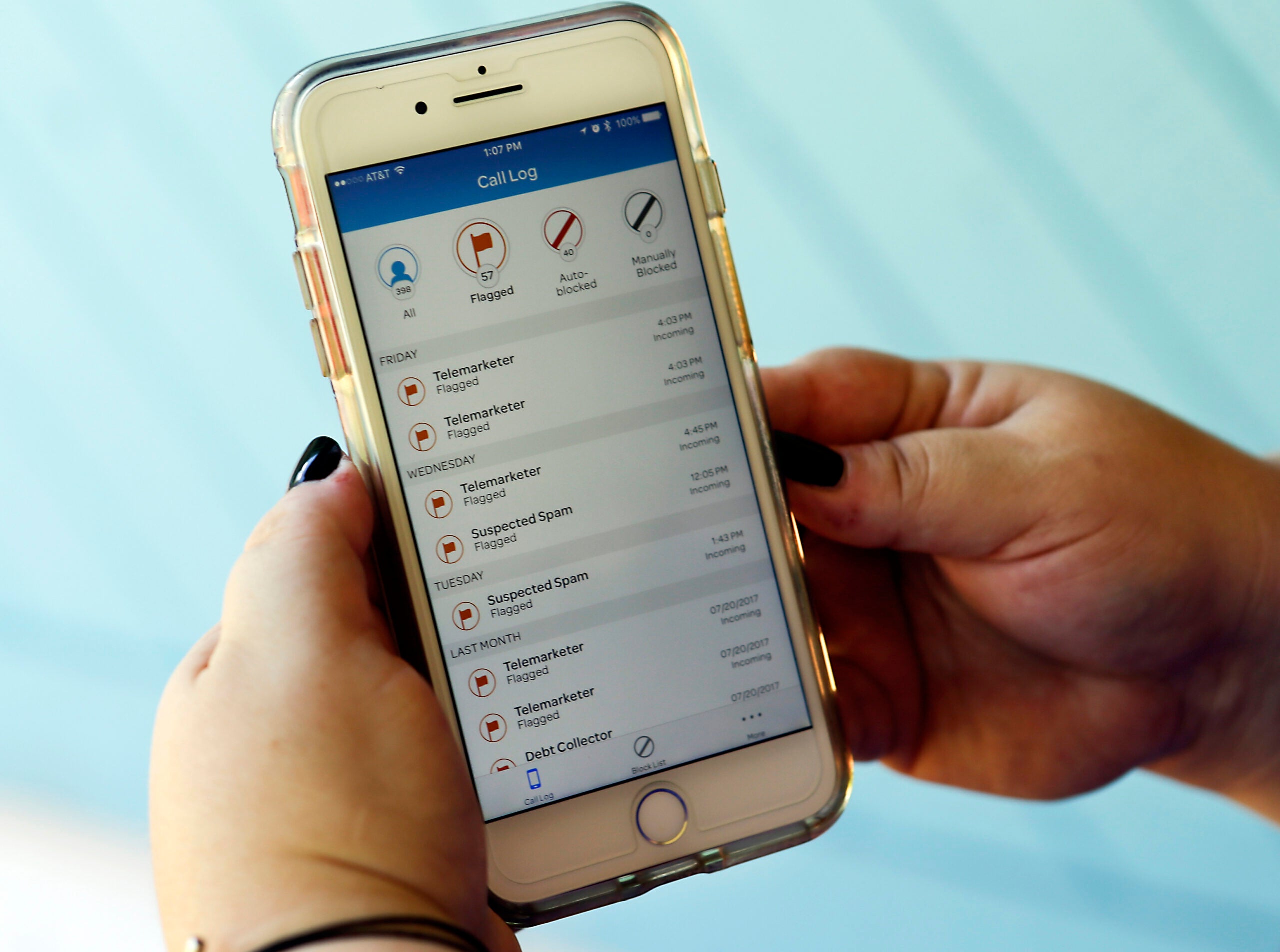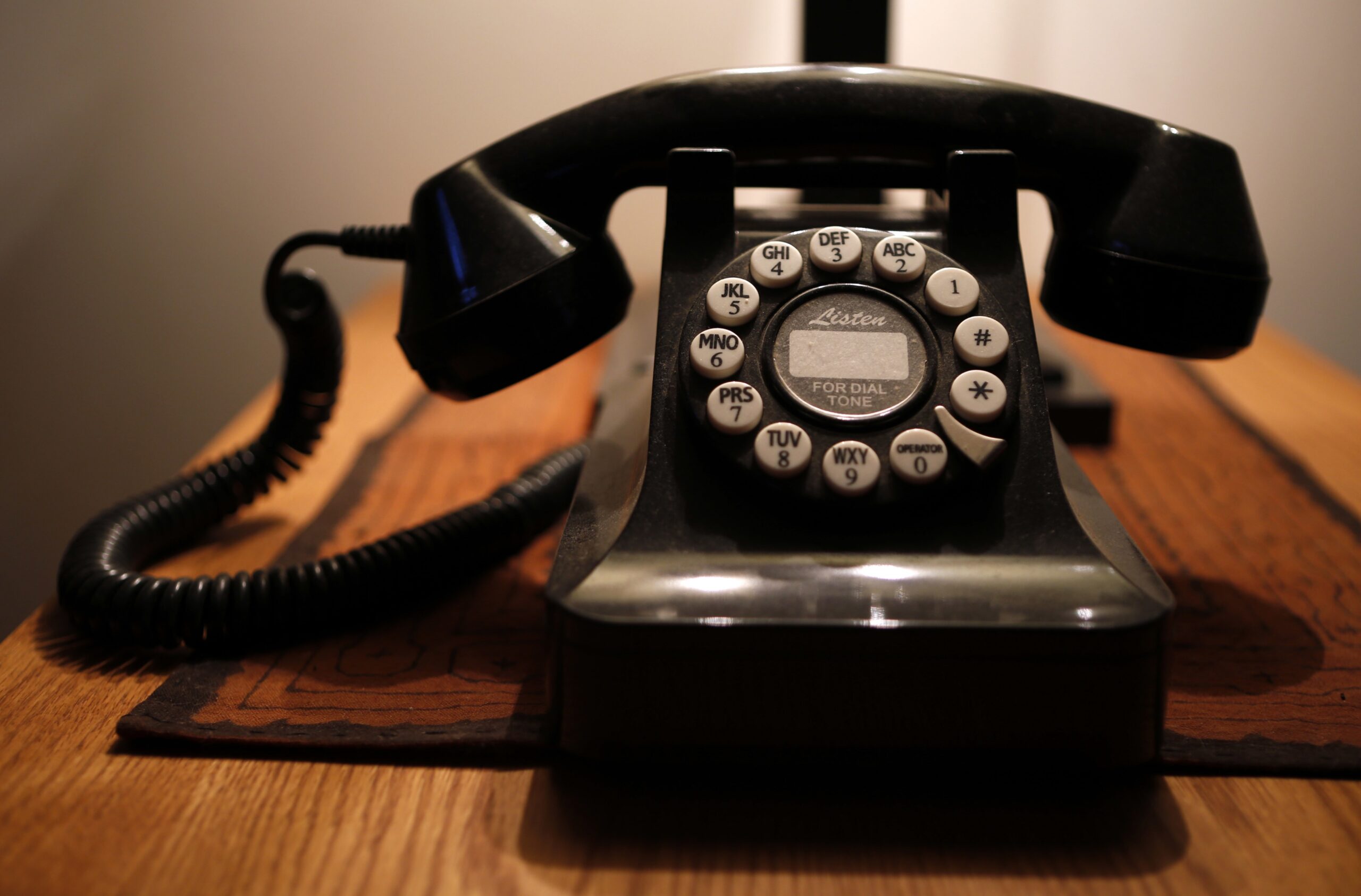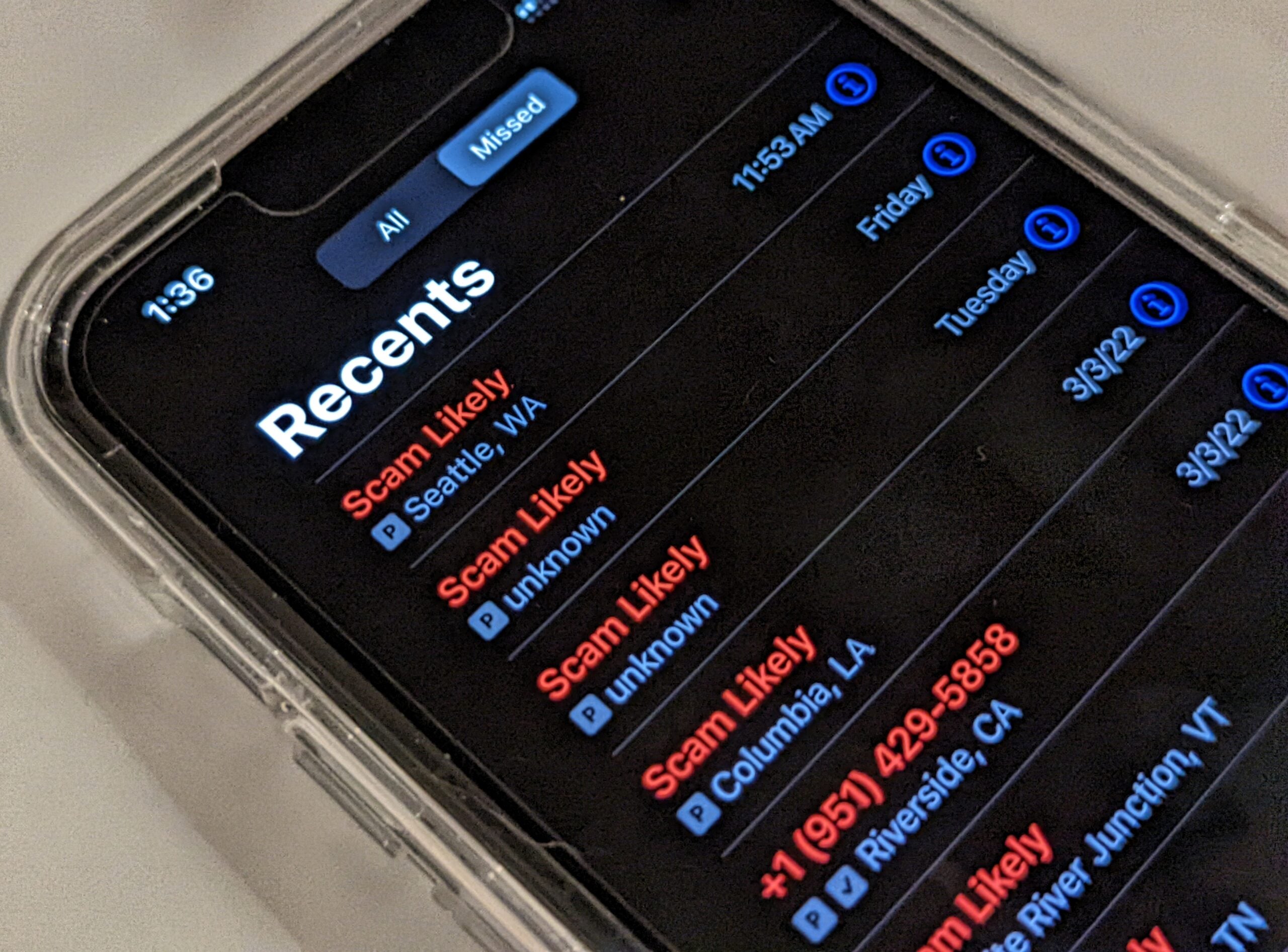In the month of November, Americans received 5 billion robocalls, or about 2,000 calls per second.
Sometimes, these scammers claim you can lower your utility bills or credit card rates. Some scare you into thinking there’s a problem with your accounts. Others offer ways to get money fast.
Tiffany Bernhardt Schultz, southwest Wisconsin regional director at the Better Business Bureau Serving Wisconsin, defined robocalls as pre-recorded messages that are coming from a potential scammer.
Stay informed on the latest news
Sign up for WPR’s email newsletter.
But that’s not always the case. There is a difference between legal and illegal robocalls. Calls about a candidate running for office, charities asking for donations, messages reminding you of appointments and your child’s school lunch balance are all legal.
The scammers — who buy phone numbers from marketing companies selling them, find them on the dark web or get them from you inputting information on bogus websites — represent the majority of robocalls to Americans, Bernhardt Schultz said.
If you have been scammed, she recommended reporting it to the Better Business Bureau and your local police station.
To avoid that situation, she offers tips on what to do if you get an illegal robocall:
Hang Up
Bernhardt Schultz said the best thing you can do when you answer a robocall is to hang up. Don’t speak or press any buttons to supposedly remove your name from a list.
Better yet, don’t answer in the first place. Bernhardt Schultz said if you answer the phone, robocallers are gaining access to a working phone number. By not answering, the callers aren’t reaching a real person, which decreases the chances that your number will make its way to other lists.
“If you don’t know that number, don’t call them back, don’t answer the phone,” she said, noting that scammers also are “spoofing” local area codes to try to make it look like a local call.
Be Wary
Scammers know how to fake an ID number, so don’t trust the number that you see coming up on the caller ID screen, even if it reads IRS or Social Security.
“If you don’t know that number that’s calling you, just don’t answer it in the first place,” she said. “Send it on through to your voicemail.”
She said IRS and Social Security will never contact you by phone, so you can be sure that anyone who is posing as a representative of those offices are scammers.
Report It
While some might question whether it’s fruitful to report a scam, Bernhardt Schultz said it’s worth it because phone companies are starting to crack down on these scammers by blocking these calls, meaning fewer are getting through to the consumer.
“The more proactive that everybody can be in helping track down these calls and the numbers they’re coming from, the more these agencies can do their work and get these calls stopped,” she said.
Scams can be reported to FTC.gov/complaint. You can also block the number on your phone.
Join Do Not Call List
Bernhardt Schultz said do not call lists are still active and advised that you should add your home phone numbers and cell phone numbers to that registry if you haven’t already done so.
Keep in mind that while these lists can protect you from illegal robocalls, you’ll still receive legal robocalls.
Wisconsin Public Radio, © Copyright 2025, Board of Regents of the University of Wisconsin System and Wisconsin Educational Communications Board.





